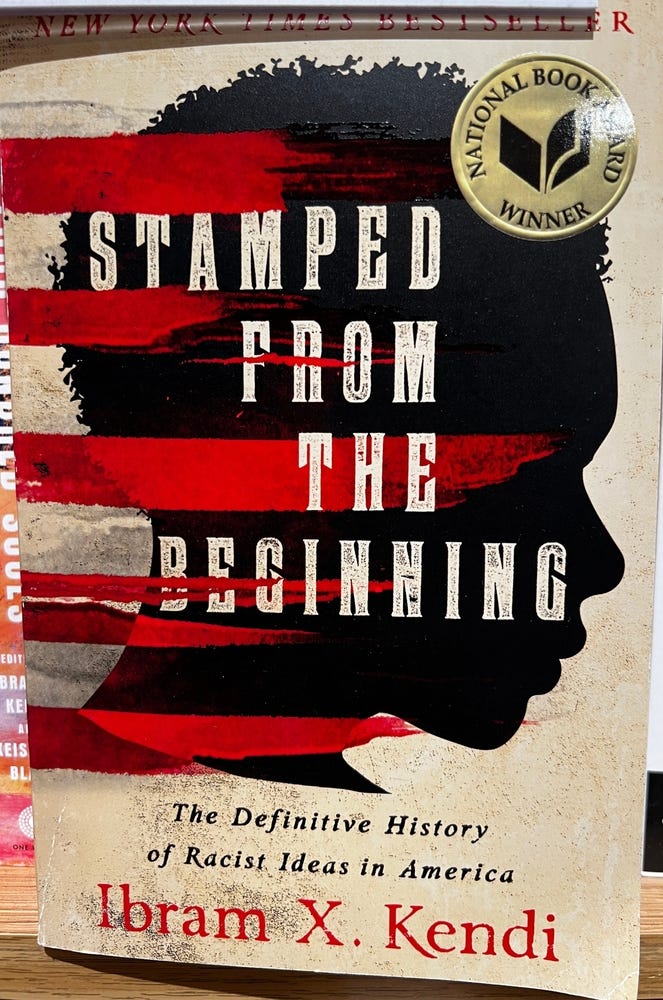E-Pluribus | October 19, 2023
Good, bad, and ugly free speech; the rise and fall of Ibram X. Kendi’s empire; what Civility is, and isn't.
A round-up of the latest and best musings on the rise of illiberalism in the public discourse:
Thomas Chatterton Williams: Let the Activists Have Their Loathsome Rallies
As appalling as words can sound, particularly in the wake of events in Gaza and Israel, Thomas Chatterton Williams argues in The Atlantic that we are fortunate to live in a country where the good, the bad and the ugly of free speech are still free.
It was against this backdrop, and following a call by a former Hamas leader for a global “day of rage,” that the government banned pro-Palestinian protests. (A Muslim immigrant may have been heeding this call when he stabbed to death a high-school teacher last Friday in the town of Arras.) During a televised address, French President Emmanuel Macron urged the country to “stay united” and condemned Hamas, maintaining that France’s “first duty” was to protect French Jews. But demonstrators at the Place de la République, and in cities across the country, had their own ideas. They defied the ban, chanting “Palestine will prevail” as police dressed in riot gear fired tear gas and water cannons into the crowds.
Germany, too, prohibited public protests in support of Palestinian causes last week. But as in France, the law was disregarded and the demonstrations still took place. That latter fact “creates other tensions,” Roché explained, beginning with the appearance that the governments are either ineffectual or heavy-handed, and their official position biased.
The question of how to balance freedom of expression and assembly with legitimate security concerns is not exactly easy to answer. Protests can of course devolve into violence, as did the tiki-torch march in Charlottesville, Virginia, or the various Proud Boys clashes that reached their nadir in the storming of the U.S. Capitol on January 6, 2021. As the conflict in Israel has once again highlighted, we are surrounded by opinions, arguments, and sensibilities that may strike many of us as not just vile but potentially threatening.
[. . .]
Even as I’m angered by the spectacle of activists and students praising homicidal actors from afar, I’m grateful for America’s comparatively extreme free-speech norms, its formal and informal commitment first of all to personal liberty. This culture of free exchange is a privilege we take for granted at our own peril. This is what the leaders of the ACLU understood when they defended the right of neo-Nazis to march through the largely Jewish town of Skokie, Illinois, in the late 1970s. And it is a core commitment too many have been willing to sacrifice in the feelings-first debates around cancel culture.
Read it all here.
Tyler Austin Harper: Ibram X. Kendi’s fall is a cautionary tale — so was his rise
Tyler Austin Harper is no conservative, but Ibram X. Kendi’s brand of anti-racism has always rubbed him the wrong way. Harper writes at The Washington Post that those concerned about improving race relations can learn more from Kendi’s rise and fall than from his ideas.
As one of a number of left-wing commentators who have been critical of mainstream anti-racism — and who believe the movement is little more than self-help for White people that runs interference for corporations and wealthy universities — I’ve watched the Kendi crisis unfold with a touch of schadenfreude. Yet though this public reckoning feels long overdue, I can’t help but also have a smidgen of empathy for the embattled anti-racism guru. Kendi was transformed from a respected historian — winner of the National Book Award for his 2016 tome, “Stamped From the Beginning,” but hardly a household name — to the head sage of a global progressive movement in the wake of George Floyd’s murder. No longer a mere ambassador for academic anti-racism, Kendi became a brand.
The prospect of Kendi’s unraveling is not — or at least, is not only — the story of a huckster who was happy to cash in on America’s racial trauma, slapping his name on strange children’s books, including “Antiracist Baby” and “Goodnight Racism,” while raking in hundreds of dollars a minute to give short talks at American universities. Instead, the Kendi affair is yet another example of an age-old truism: White American elites on both sides of the political spectrum — academics, publishers, members of the media, corporate leaders — are always waiting in the wings to turn a shiny new Black intellectual into a mouthpiece for their political agenda.
Kendi’s work has always courted acclaim and controversy in equal measure. “Stamped,” a more-than-500-page doorstop that charts a conceptual history of American racism, published during the halcyon final year of the Obama presidency, has a provocative and even ingenious thesis: Racist ideas don’t generate racist policies; instead, racist policies — defined as policies that produce disparities — give birth to racist ideas that serve to explain those inequalities after the fact. “Time and again, racist ideas have not been cooked up from the boiling pot of ignorance and hate,” Kendi declares. “Time and again, powerful and brilliant men and women have produced racist ideas in order to justify the racist policies of their era, in order to redirect the blame for their era’s racial disparities away from those policies and onto Black people.”
By reversing the causal flow of racial inequality — insisting that the bad laws come first, the bigoted ideas later — Kendi mounted a frontal assault on the anemic liberal moralizing at the heart of mainstream American race discourse. He set out to dismantle the comforting assumption that racism is a problem of individual mental attitudes — the thoughtcrimes of mustache-twirling scoundrels who live in red states and rural places — and instead emphasized that racism is a systemic problem baked into our public and private institutions.
Read it all.
Adam Kissel: Book Review: The Virtue of Civility
Last week’s Pluribus featured a review of the book, “The Soul of Civility: Timeless Principles to Heal Society and Ourselves.” This week, Adam Kissel at Minding the Campus reviews the same book, offering an Ayn Rand-inspired take on the virtue of (“rightly understood”) selfishness.
Civility is the disposition to serve both oneself and society rightly—in the right ways, to the right extent, and for the right reasons—in each social situation. In this regard, civility is a practical civic virtue. Taken broadly, it encompasses all social and civic situations, including situations that might seem to call for virtues with different names, such as courage.
But commonly, we refer to civility in terms of mid-level social situations. In other words, family life and deep friendship require stronger, thicker dispositions and actions (such as love), while everyday economic interactions require no more than instrumental politeness. Civility flourishes in that middle ground where people should be able to genuinely enjoy one another’s company.
It’s nice to be nice, but Hudson insists that mere politeness—especially when it means following rules of social conduct rather than actively respecting another person—is not a virtue. Too often, such rules serve to divide the people who follow them from those who don’t, rather than reflecting any longstanding tradition about genuine respect.
[. . .]
[W]hat’s missing most from Hudson’s book is what’s missing from the vast majority of authors on civility: the opposite vice, namely, failing to stand up for ourselves. Selfishness rightly understood—civility rightly understood—means promoting one’s own values not just when others disagree but even when it means putting oneself first.
Read the whole thing.
Around Twitter (X)
“The therapeutic university” (Conor Friedersdorf’s characterization) strikes again:
Here’s a pretty amazing piece of video from the New Democratic Party of Canada convention where “gender parity” will be enforced via “yellow cards” given to non-men. (Click for video.)
And finally, while Ibram X. Kendi is never in doubt with “you are either racist or anti-racist,” just coming out with a simple anti-Hamas statement seems to be a bridge too far:










